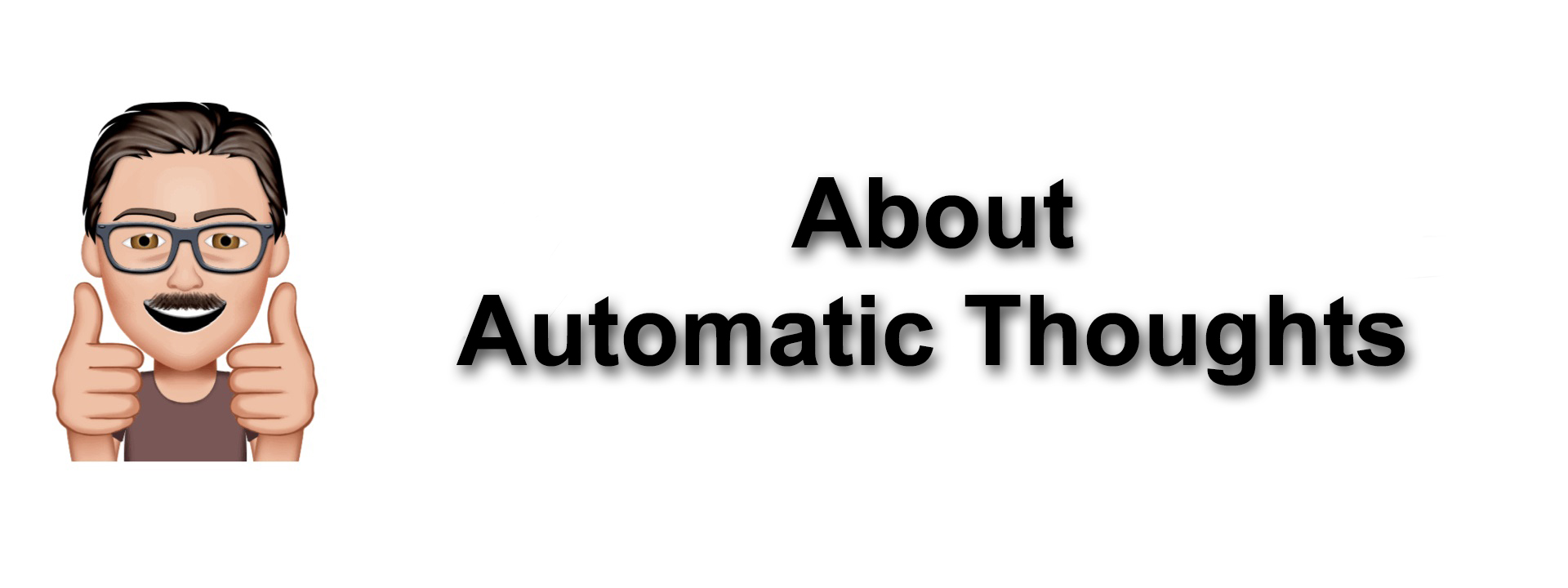- Tel: 07979 35 7979
- simon@maskuk.co.uk
- Bradford, West Yorkshire
Become An Instructor
Become An Instructor


Published by Get Self Help
Edited by Simon Whitby
© Get Self Help
Our thoughts - all 70,000 to 100,000 of them every day - are constantly helping us to interpret the world around us, describing what is happening, and trying to make sense of it by helping us interpret events, sights, sounds, smells, feelings.
Without even realising it, we are interpreting and giving our own meanings to everything happening around us. We might decide that something is pleasant or nasty, good or bad, dangerous or safe.
Popular Articles
Anxiety
Bipolar Disorder
Depression
Eating Disorders
PTSD
Schizophrenia
Mood Disorders
Personality Disorders
Psychotic Disorders
Impulse Control
Get Self Help Articles
ACE
APPLE
BACES
CLEAN
DRIFT
FACE
Helicopter
OCD
THINK!
Wellbeing
Thoughts are simply electro-chemical impulses in our brain. Thoughts are not statements of fact. Epictetus, in the first century, said: "Men are not disturbed by things, but by the view they take of them". CBT says that it is not the event which causes the emotion (and our behavioural reaction) but the meaning we give that event - or what we think ABOUT that event.

Because of our previous experiences, our upbringing, our culture, religious beliefs and family values, we may well make very different interpretations and evaluations of situations than someone else. These interpretations and meanings we give events and situations, result in physical and emotional feelings.
Don't Assume! Because if you assume, you make an Ass out of U and Me: ASS | U | ME
Something happens or we notice something, which triggers a thought. Particular types of thoughts tend to lead to particular emotions.
Particular kinds of thoughts lead to different emotions.
The thoughts: Something bad is going to happen and I won't be able to cope will lead us to feel anxious and we will try to avoid or escape those situations
The thoughts: I'm being treated unfairly will lead us to feel angry, and we respond by attacking, shouting or hitting out in some way
Negative or gloomy thoughts will lead to depression, so we withdraw and isolate ourselves, and do less
Automatic thoughts
• Can be words, an image, a memory, a physical sensation, an imagined sound, or based on our intuition or a sense of just knowing
• Believable. We tend to automatically believe our thoughts, usually not stopping to question their validity. When another driver cuts me up, I might judge that he`s a selfish thoughtless toad, but in fact, he might be taking his wife to hospital as she is about to give birth. Thoughts are not necessarily true, accurate or helpful. Ask: Is this fact or opinion?
• Are automatic. They just happen, popping into your head and you often won`t even notice them.
• Our thoughts are ours. They can be quite specific to us, perhaps because of our present or past experience, knowledge, values and culture, or just for no good reason at all. Some thoughts are so out of keeping with all those things, and that can make them seem all the more distressing, because we add some meaning about why we had them (I must be a bad person!)
• Habitual and persistent. Our thoughts seem to repeat over and over, and the more they repeat, the more believable they seem, then they set off a whole chain of new related thoughts that lead us to feel worse and worse. They can follow themes, for short periods, or very often, throughout years and decades.
Use STOPP skill to help you learn to notice, question and decide how to react to distressing thoughts.
Don't Believe Everything You Think!
Fake News!
The Mind Bully
Defusing Metaphors
Automatic Thoughts
Different Perspectives
Fact or Opinion?
THINK
Save or print this page as PDF